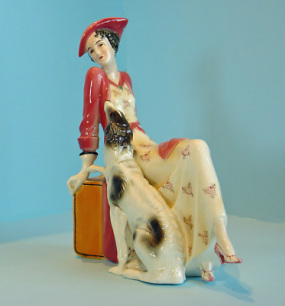 Many Borzoi enthusiasts and collectors are familiar with the fine Art Deco era porcelains produced by Hertwig and Company of Germany. Katzhutte, once referred to as “Poor Man’s Goldscheider” has now become a sought after class of art with rare pieces becoming quite valuable. Katzhutte means cat house in German and was started back in the 1800’s in Thuringia, Germany. Pieces produced at this factory carry the green or blue cat in house marking. The factory was started in 1864 when Nikolas Beyerman and Ernst Fredrich Hertwig acquired the “UntereEisenhammer” a rather old and run down iron works on the bank of the Schwarzariver in Germany. There was good clay there and an abundance of cheap skilled labor. By 1890 there were 900 people employed by Hertwig, 300 in the factory on production and 600 home workers who made the clothes and bodies of the dolls. Puppets and Dolls were what Hertwig was most famous for. They also produced animals, birds and utilitarian kitchenware. 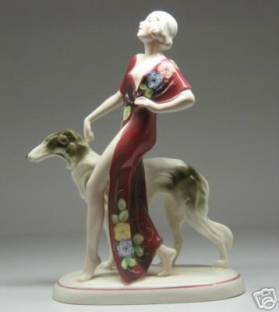 In 1958 the East German State took the factory over and the company was very unprofitable. In 1983 the state needed hard currency, so they raided the factory, museum and showrooms where copies of each piece produced by the Hertwig factory since 1864 were held, and they expropriated them all. It is estimated that some 15,000 items disappeared and were converted into hard currency in the West. So the records were lost. The factory continued to decline and in 1995, it finally closed. During their peak, the factory produced many lovely Borzoi pieces among their collections.The works during this time would often include lovely ladies with Borzoi in an Art Deco style. There were also many lovely Borzoi pieces created of Borzoi on their own in running, standing and sitting positions.
2 Comments
|
A New Article Each Quarter!
Archives
July 2014
Categories
All
|
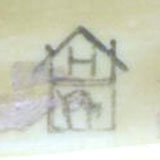
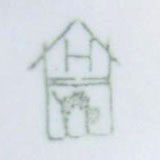
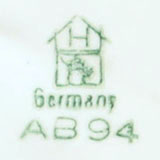
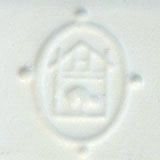
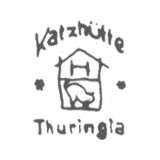
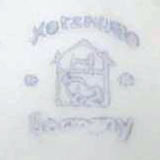
 RSS Feed
RSS Feed
